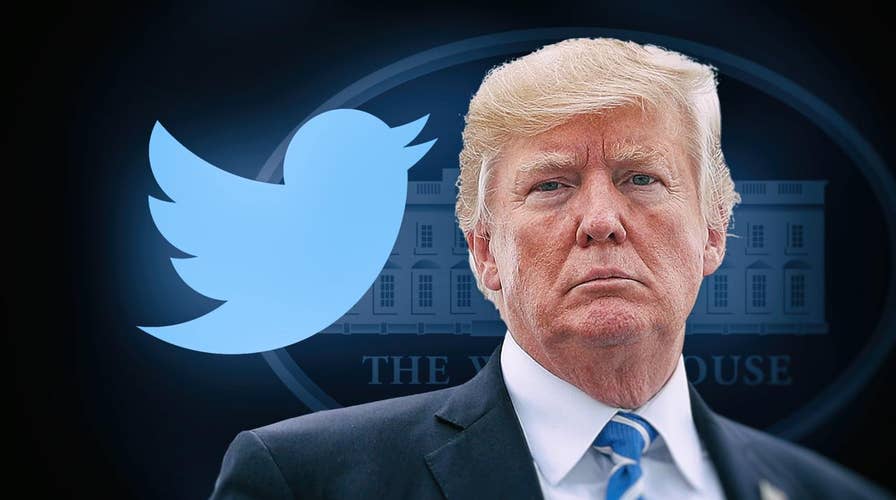Twitter in hot seat on Capitol Hill on alleged bias
Rep. Leonard Lance speaks out on what he plans to ask Twitter CEO Jack Dorsey on the handling of conservative content.
The Justice Department on Wednesday announced Attorney General Jeff Sessions will convene a meeting with state attorneys general this month to discuss long-standing concerns by conservatives that social media platforms like Facebook and Twitter are "stifling the free exchange of ideas on their platforms."
The announcement came after a Senate Intelligence Committee hearing involving top officials from Facebook and Twitter, and ahead of a House Energy and Commerce Committee hearing on alleged bias and lack of transparency, where Twitter CEO Jack Dorsey testified.
“The Attorney General has convened a meeting with a number of state attorneys general this month to discuss a growing concern that these companies may be hurting competition and intentionally stifling the free exchange of ideas on their platforms,” the statement said.
There was no date set for the meeting. And it was not immediately clear how many attorneys general would attend the meeting.
The Senate hearing focused primarily on the use of social media by Russia and other foreign actors in the 2016 election, with executives promising to do more to combat such meddling in the future.
But President Trump and a number of Republicans have prioritized concern that tech companies discriminate against conservatives with bias in treatment and so-called “shadow banning.”
FACEBOOK, TWITTER ISSUE MEA CULPAS ON FAILURE TO SPOT RUSSIAN MEDDLING
“What we’re concerned about is how Twitter has in some ways it looks like selectively, adversely affected conservatives,” Rep. Steve Scalise, R-La., said at the House hearing.
He used the example of Rep. Marsha Blackburn, R-Tenn., who he said had her Senate campaign announcement video taken down by Twitter. Dorsey said that action was a mistake, which was corrected, and prompted an apology from Twitter.
In his opening remarks, Dorsey pushed back against the idea Twitter was biased by its creator’s personal opinions. But he conceded mistakes were made in terms of its algorithms.
“I want to start by making something clear: we don't consider political viewpoints, perspectives, or party affiliation in any of our policies or enforcement decisions. Period,” he said. “Impartiality is our guiding principle.”
Trump has repeatedly claimed social media platforms are biased against Republicans and conservatives. In an interview with The Daily Caller this week, he said social media companies had backed Hillary Clinton in the 2016 election.
“Maybe I did a better job because I’m good with the Twitter and I’m good at social media, but the truth is they were all on Hillary Clinton’s side, and if you look at what was going on with Facebook and with Google and all of it, they were very much on her side,” he said.
Fox News’ Jake Gibson contributed to this report.





